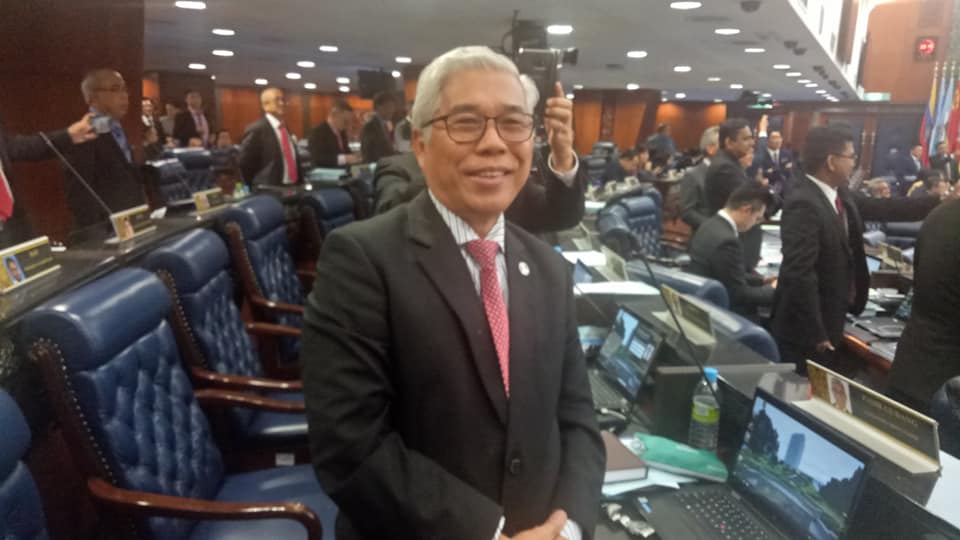KUALA LUMPUR, Jan 24 — A Johor government MP today urged the state government to reduce cancer cases that are reported to be the highest in the southern state.
The Malaysia National Cancer Registry Report (MNCRR) 2012-2016 reported Johor as recording 16,434 new cases of cancer during this period, far more than most of the states and federal territories, except for Selangor, which was in second place at 14,475 new cases.
Johor was also top of the list with 15,312 new cancer cases in the earlier MNCRR 2007-2011, ticking off Pasir Gudang MP Hassan Abdul Karim.
The PKR leader told CodeBlue that he was concerned over the rise of cancer cases, and called for greater cooperation between the federal Ministry of Health (MOH) and the Johor state government in addressing the situation.
“As a Member of Parliament from Johor, I urge the health authorities in Johor, in particular, and the Johor state government, to take immediate preventive measures.
“I believe that what the health authorities are doing, either (when they were under) the old government or the new government, is still not enough,” he said when contacted today.
“The Johor Health Department must act quickly by carrying out early screenings.”
Hassan also said health should be prioritised as one of the core areas of development in the state.
Johor Menteri Besar Dr Sahruddin Jamal, Johor Health, Culture, and Heritage Committee Chairman Mohd Khuzzan Abu Bakar, and state Health director Dr Aman Rabu did not immediately return emailed requests for comment by CodeBlue.
For the 2012-2016 period, Johor, Selangor, and Perak were the top three states with the highest number of new cancer incidences, followed by Penang, Sarawak, Sabah, Kuala Lumpur and Putrajaya (classified as one federal territory), Kedah, Pahang, Kelantan, Melaka, Negri Sembilan, Terengganu, Perlis, and Labuan.
The MNCRR 2012-2016, which was published on January 3 by the Malaysian National Cancer Registry, also found that Johor is the third most common state where women would get cancer. Johor was previously in second place for both men and women. It is no longer in the top three states for men to get cancer.
Cancer incidence in Malaysian women increased in Johor from 2007 to 2016, while the figures went down for men in the same period. The MNCRR 2012-2016 did not reveal why people in certain states are more prone to getting cancers or specific types of cancers, but it did reveal the breakdown of new cancer cases according to cancer type, by state.
Colorectal cancer cases were most common in Johor, as well as cancer of the trachea, bronchus and lung, leukaemia, liver, prostate, ovary, and corpus uteri. In breast, lymphoma, nasopharynx and thyroid cancer incidences, Johor is the second most likely state to get these cancers, while Johor is the third most likely state to get cervical cancer.
Former Johor state health, environment, education and information committee chairman Ayub Rahmat from the past Barisan Nasional administration, on the other hand, said the spike in cancer cases should be seen positively.
The Umno leader attributed the increase to a good cancer reporting system in place, an active screening programme for the chronic disease, and increased public awareness from state campaigns in going to the doctor early to verify if they have signs of cancer.
The former Kemelah assemblyman also spoke of more referrals at Sultan Ismail Hospital in Johor Baru, which is the country’s cancer centre for the southern zone.
“NGOs have also helped to raise public awareness, directly or indirectly, about cancer,” Ayub told CodeBlue, adding that an in-depth study however is needed to investigate more factors for the spike.
Former Johor DAP chief Dr Boo Cheng Hau also saw the MNCRR 2012-2016 findings in a positive light, saying it could show that more health personnel are being able to diagnose and detect cancer cases earlier, which he said was a good thing.
“The cancer prevalence rate goes according to ratio to the actual population because Johor may have a higher total number, but it also has one of the larger populations in the country,” the former Skudai assemblyman added.
Cancer is the second leading cause of death in the world and in Malaysia, as of 2018. It contributes to 9.6 million deaths worldwide and 16,000 deaths in Malaysia.








